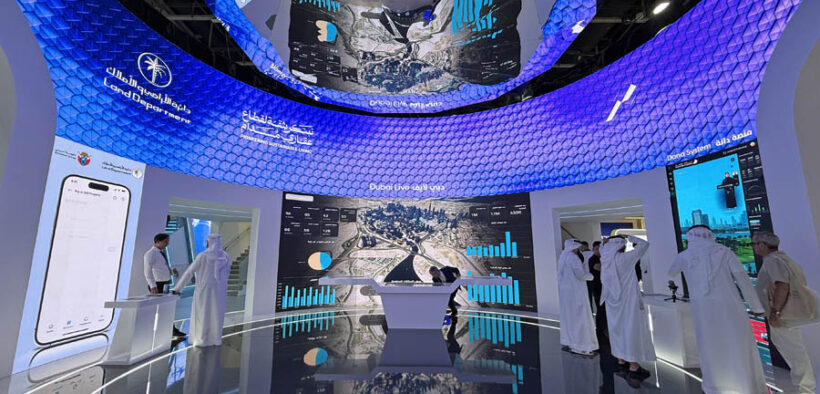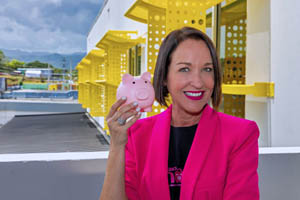Dubai’s AI playbook: A wake-up call for Puerto Rico gov’t, business leaders

Last week, I walked into the future. I was the only Puerto Rican among more than 200,000 attendees, 180 countries and 4,000 exhibits at GITEX Global 2025 in Dubai, the largest technology and artificial intelligence conference in the world.
For five days, this metropolis in the desert, often called “the capital of the future,” became a living lab of innovation, investment and policy at scale. While many countries are still debating AI ethics and regulations, Dubai is executing with precision, attracting capital, global firms and talent at an impressive pace.
One question echoed in my mind: How is it that I, the female founder of a small startup from Puerto Rico, was the only one representing the island at the world’s largest AI event, surrounded by the most powerful companies on the planet?
More than a conference, GITEX showed that countries integrating AI into all sectors, from government to energy, will shape the next global economy.
AI as national policy, not just business strategy
Dubai is not just adopting AI. It is embedding it into its national identity. The government has implemented AI across immigration, transportation, safety and health care. Residents interact with systems using natural language and receive approvals or services within minutes. This is no longer a concept. It is real.
This transformation stems from strategic planning. In 2019, the UAE launched the Mohamed bin Zayed University of Artificial Intelligence (MBZUAI), the world’s first and only graduate-level AI-focused institution. AI education is now mandatory from pre-K through 12th grade. The goal is to develop a homegrown workforce ready to lead in an algorithm-driven world.
In Puerto Rico, AI and technology are still treated as optional in many schools, and digital transformation is slow.
Dubai’s strategy to attract investment and talent
At GITEX, UAE officials announced the Stargate AI Campus, a 5-gigawatt supercomputing complex. It will be the largest in the world dedicated exclusively to AI development and deployment. Comparable in scale to Palm Jumeirah, the man-made island visible from space, it will provide the energy and infrastructure to host next-generation AI operations.
Dubai is also deploying artificial‑intelligence‑enabled tools to support investment decisions. For example, investment and financial‑tech platforms in the UAE now offer AI‑powered analysis of firms, automated disclosures and robo‑advisory services, simplifying access and insight for global investors. These technologies form part of the emirate’s broader strategy to reduce friction in capital flows and make the region more attractive to global capital.
These are not aspirational goals. They are active policies. As a result, the United Arab Emirates attracted approximately $30.7 billion in foreign direct investment (FDI) in 2023, with AI, fintech and clean energy among the top growth sectors.
Meanwhile, Puerto Rico continues to face energy and water instability and bureaucratic delays. More than 70% of the island’s power still comes from fossil fuels, and blackouts and water shortage remain common for businesses and homes.
Dubai, by contrast, is powering its AI growth through solar, nuclear and green hydrogen, embedding sustainability into its economic model.
Sam Altman’s reality check for local CEOs
One of the most anticipated speakers at GITEX was Sam Altman, CEO of OpenAI. He shared that OpenAI already operates with 10 AI agents per human employee, dramatically increasing speed and efficiency. This is not speculation. It is current practice.
At the same time, many leaders in Puerto Rico and across the U.S. continue to say, “AI will not replace humans.” The numbers suggest otherwise.
Earlier this year, Marc Benioff, CEO of Salesforce, confirmed that AI was a key driver behind the company’s 30% workforce reduction. Companies and leaders that thrive in the next decade will not necessarily be the largest, but those that adapt fastest.
For Puerto Rico’s private sector, the takeaway is clear. AI is not optional. It must be integrated into operations, service models and innovation strategies now.
From observer to builder
I attended GITEX with a clear purpose: to accelerate AI integration into my platform, QuieroMoni.com, and our virtual financial coach, CoachMoni. Our mission is to close the wealth and financial education gap for Latina women around the world.
What I saw in Dubai was not just technology. It was proof of what’s possible when policy, infrastructure, and leadership align.
Puerto Rico doesn’t need to copy Dubai. But we do need our own road map. We have talent, strategic location and creativity. What we lack is unified vision and the will to act.

Frances Ríos is the founder and CEO of Moni Wealth and Women Who Lead. An expert on female talent and consumer inclusion, she empowers Latinas globally with financial tools, knowledge and confidence through platforms that integrate artificial intelligence for smarter money decisions. She is also the founder of W Certified Company.




